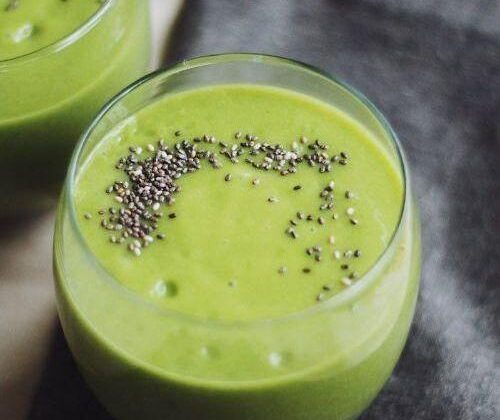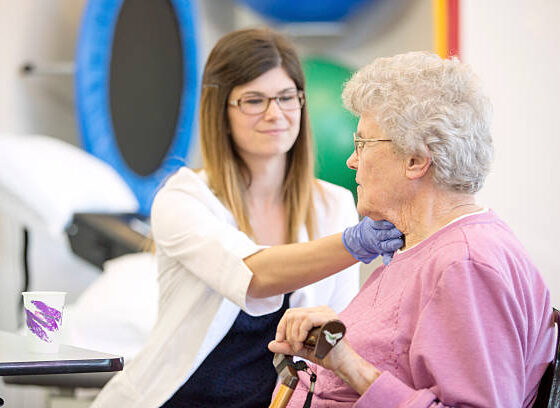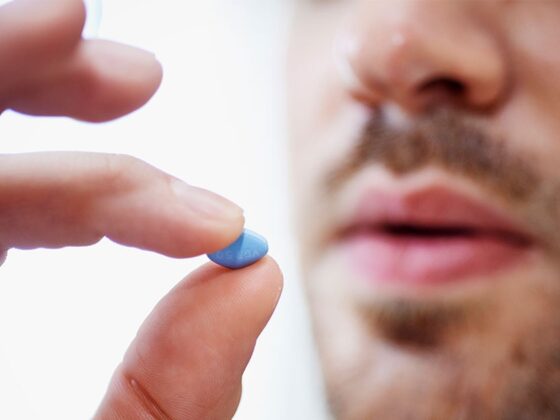You know that feeling deep in your gut that you get? That is because your gut is your second brain and it is telling you something. This “Little Brain” is called the enteric nervous system and it is made up of 100 million nerve cells lining your gastrointestinal tract. (3) Numerous studies in the past two decades have demonstrated links between gut health and the immune system, mood, mental health, autoimmune diseases, endocrine disorders, skin conditions, and cancer. (4) If you want to operate at peak performance, you need to focus on improving your gut’s health.
The enteric nervous system
The enteric nervous system’s “main role is controlling digestion, from swallowing to the release of enzymes that break down food to the control of blood flow that helps with nutrient absorption to elimination,” explains Jay Pasricha, M.D., director of the Johns Hopkins Center for Neurogastroenterology, whose research on the enteric nervous system has garnered international attention. “The enteric nervous system doesn’t seem capable of thought as we know it, but it communicates back and forth with our big brain—with profound results.”
“For decades, researchers and doctors thought that anxiety and depression contributed to these problems. But our studies and others show that it may also be the other way around,” Pasricha says. Researchers are finding evidence that irritation in the gastrointestinal system may send signals to the central nervous system (CNS) that trigger mood changes.
“These new findings may explain why a higher-than-normal percentage of people with IBS and functional bowel problems develop depression and anxiety,” Pasricha says. “That’s important, because up to 30 to 40 percent of the population has functional bowel problems at some point.” (3)

Your gut’s health and your brain
A healthy gut biome is a foundational part of your performance, longevity, and your mental health. You have trillions of bacteria, viruses, protozoa, and fungi, all working in a delicate balancing act to keep your body and brain running smoothly. Over the last 20 years, scientists have discovered that your gut and your brain are in constant communication with each other, and your gut bacteria have a huge influence over your brain function.
For example, over 90% of your brain’s serotonin—the chemical that stabilizes your mood and wards off depression— is produced in your gut(2). In fact, your gut bacteria play an essential role in synthesizing all five major neurotransmitters—GABA, serotonin, acetylcholine, norepinephrine and dopamine[7].
Your gut bacteria are surprisingly good at mind control. They have huge influence over your mental state, which means hacking your gut is a powerful way to upgrade your brain function. (1)
It’s all in your head
The gastrointestinal tract is sensitive to emotion, which triggers symptoms in the gut. The brain and gut talk to each other, it’s not just a one-way conversation. A person’s stomach or intestinal distress can be the cause or the product of anxiety, stress, or depression. That’s because the brain and the gastrointestinal (GI) system are intimately connected.
This is especially true in cases where a person experiences gastrointestinal upset with no obvious physical cause. That doesn’t mean that functional gastrointestinal conditions are imagined or “all in your head.” Psychology combines with physical factors to cause pain and other bowel symptoms. In other words, stress, depression, or other psychological factors can affect movement and contractions of the GI tract.
In addition, many people with functional GI disorders perceive pain more acutely than other people do because their brains are more responsive to pain signals from the GI tract. Stress can make the existing pain seem even worse.
Multiple studies have found that psychologically based approaches lead to greater improvement in digestive symptoms compared with only conventional medical treatment. (6)

Improve your gut health
Probiotics are huge doses of good gut bacteria in pill form. Once they reach your gut, they integrate with your existing gut biome, shifting your bacterial balance so your gut is stronger and more diverse. (1) You also need prebiotic fiber to feed the good bacteria and help them to stay strong. (5) What you put into your system affects how you will perform, react, and feel so make sure you eat foods that will feed the good bacteria and add more probiotics to your system when you are feeling out of balance, especially after you’ve taken antibiotics.
Antibiotics kills all bacteria, even the good stuff. Antibiotics are also damaging to the gut microbiota and immunity, with some research reporting that even 6 months after their use, the gut still lacks several species of beneficial bacteria. According to the Centers for Disease Control and Prevention (CDC)Trusted Source, doctors in the United States prescribe around 30% of antibiotics unnecessarily. (5) If you must take an antibiotic, make sure you follow it up with a high-quality probiotic.
Before the turn of the 21st Century, the medical industry believed that the digestive system was a tube to absorb nutrients and nothing more. The discovery that it has its own brain function that communicates with our brains changed everything and, in the process, we started to learn that gut health is vital to ensuring peak performance.
Sources:
- Biohack Your Gut for Longevity – Dave Asprey
- Serotonergic Mechanisms Regulating the GI Tract – National Library of Medicine
- The Brain Gut Connection – John Hopkins Medicine
- Whats an Unhealthy Gut? – Healthline
- 10 Ways to Improve Gut Health – Medical News Today
- The Gut Brain Connection – Harvard Health Publishing
- Bacterial Neuroactive Compounds Produced by Psychobiotics – Springer Link











1 comment
Comments are closed.